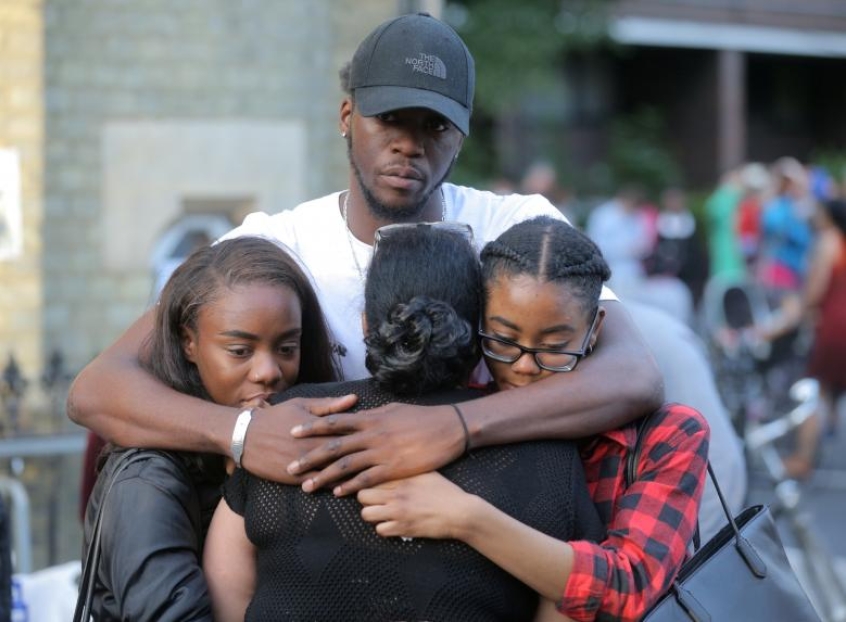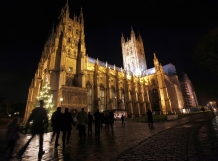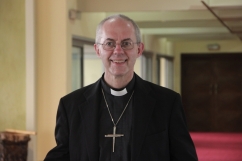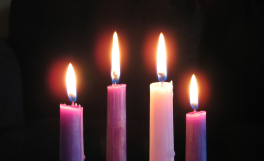
In the sheer sense of desperation which follows news such as the Grenfell Tower fire, many of us are searching for something positive to cling on to.
In a similar way to the recent terror attacks in London and Manchester, much of that search for positivity has rightly focused on the role of the emergency services.
The bravery of PC Keith Palmer, the police officer killed in Westminster trying to protect friends, colleagues and strangers, was an inspiration to millions. Likewise the actions of the unarmed, off duty officer who tackled the London Bridge attackers.
The latest round of breathtaking bravery from the emergency services came this week in west London. The thought of running towards a burning building, and then into it, is quite astonishing.
Jesus said there is no greater love than that shown by someone who lays down their life for another. With a fire as deadly as the Grenfell Tower's was, the officers who ran towards the building did so knowing they may have been about to lay down their lives. We owe them more than we can put into words.
There has been another source of positivity this week though, amid the desperate images from north Kensington – the role played by local churches. Within a couple of hours of the fire starting, St Clement's was opened up to provide shelter to the shocked residents. As the morning went on and the full horror of what was happening became clear, more and more local churches got involved.
Joined by local Muslim, Sikh, Jewish and other faith groups, the Church swung into action in a major way. The Salvation Army arrived to provide food and refreshments to the emergency services who were physically as well as emotionally drained.
Donations began to pile up at St Clement's and at the Tabernacle Christian Centre from the local community. Soon, people from all over London and the country were sending supplies. Other local churches stepped up to provide space. St John's, Notting Hill, quickly set up beds, a play area for children and provided food for anyone who needed it. This was civil society swinging into action, led by the Church.
If you are in need of somewhere to rest up or eat in wake of #glenfelltower please come up to @StJohnNottHill pic.twitter.com/WmpbmbVsap
— James JP Poulter (@jamespoulter) June 14, 2017
Sikh volunteers arrived to help with the effort. Collections began at mosques in east London and local synagogues were also active in the response.
The Guardian reported a local councillor commending the efforts of a local Methodist minister. 'Gesturing to nearby efforts by the Rev Mike Long at Notting Hill Methodist church, she [Cllr Judith Blakeman] said: "Mike has been running this centre, giving people food and water all day, and not a single person from the council has been here."' It isn't just material needs of course – spiritual needs are also being met. Prayer vigils, one-to-one listening and services are being held to help people through the devastation.
The Bishop of Kensington has spent the last couple of days on the scene comforting families, praying with those affected and co-ordinating the other clergy who'd come to help.
He said, 'Our local churches have done a fantastic job opening their hearts and homes and buildings for the local community.' The Archbishop of Canterbury arrived on the scene and spoke of the devastation but also the hope of an 'outpouring of the most extraordinary love and generosity, and people just getting stuck in – putting their own interests aside...It's just incredible.'
In the months and weeks ahead the Church will continue to be there for those who need it, of course. But this week we think about this stunning rapid response, which always, always happens. Whenever a tragedy happens, you can be sure of two things – the emergency services will be putting themselves in harm's way and the local church will be pretty close behind them.
Whenever disaster strikes, the Salvation Army is on the scene in amazingly quick time, the local vicar throws open the doors of the church and joins with colleagues of other denominations to provide for the material and spiritual needs of victims.
Christianity has a deep regard for the common good. It goes back to the Jewish tradition of helping the widow and the orphan and the alien, found throughout the Hebrew Bible. Deuteronomy 10: 17-19 contains a good summary. It says, 'For the Lord your God is God of gods and Lord of lords, the great God, mighty and awesome, who is not partial and takes no bribe, who executes justice for the orphan and the widow, and who loves the strangers, providing them with food and clothing. You shall also love the stranger, for you were strangers in the land of Egypt.'
The Prophet Jeremiah commands the people in exile to 'seek the welfare of the city' where they find themselves. Around the world, that is what the Church does, time and again. In such tragic circumstances, we thank God for this shaft of light amid the darkness.
















